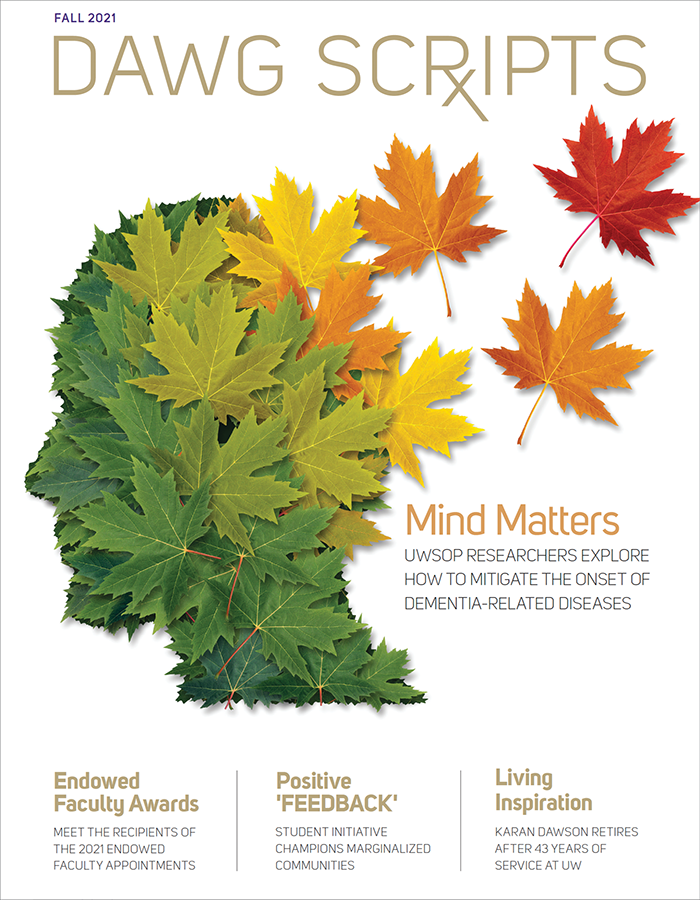Dawg Scripts
Fall 2021
Mind Matters
UWSOP researchers are exploring how we study and mitigate the onset of such Dementia-related diseases as Alzheimer’s.
There are currently more than 50 million people globally living with Alzheimer’s, a degenerative brain disease and the most common form of dementia. Though there is no known cure, scientists and researchers worldwide are working to find new treatments to help mitigate its impact.
Among these industry leaders are several UWSOP researchers who are making strides to address a gamut of Alzheimer’s-related challenges, from examining the root of rising health care costs to exploring the connection between common drugs and brain health.
2021 ALZHEIMER’S DISEASE FACTS & FIGURES

6 MILLION
Americans are living with Alzheimer’s

1 IN 3
seniors dies with Alzheimer’s or another dementia

$355 BILLION
cost to the nation for Alzheimer’s and other dementias

16% INCREASE
Increase in Alzheimer’s and dementia deaths during COVID-19
MEDICATION MATTERS
The National Institute on Aging has awarded a grant expected to total $55.6 million to diversify and broaden the participants and science of the Seattle-based Adult Changes in Thought (ACT) Study. This study is led by the University of Washington (Paul Crane MD, MPH), Kaiser Permanente Washington (Eric B. Larson, MD, MPH) and the University of California San Diego (Andrea LaCroix, PhD).
Over the last several years, Professor and Plein Endowed Director of the Plein Center Shelly Gray has been a co-investigator on the ACT study and has led several studies examining medication use and dementia risk.
A landmark study published in JAMA Intern Med (2015) found that anticholinergic medications are associated with increased dementia risk, especially when taken at higher doses. Common anticholinergic medications include certain anti-depressants, antihistamines, and medications used to treat bladder problems. The new five-year grant will extend this work and fund three interrelated projects. The project led by Gray and Jessica Young, PhD, from Institute for Stem Cell and Regenerative Medicine (ISCRM), will study how commonly prescribed classes of medications relate to the incidence of dementia. UWSOP faculty Zach Marcum, PharmD, PhD, and Douglas Barthold, PhD, are also involved with this work. In this unique collaboration, Gray will use epidemiological models to characterize how common medications prescribed in older adults are associated with dementia, and Young will use stem cells derived from deceased ACT study participants to understand the cellular mechanisms of how these drugs could impair neuronal function that would lead to neurodegeneration. In their study, Gray and Young will explore such medicine classes as anticholinergics and antihypertensives.
“Certain medications that older adults take have been associated with increased dementia risk,” said Gray.” Also, work by Marcum suggests that certain anti-hypertensives might offer brain protection. But one important caveat to epidemiologic research is that sometimes we don’t know if it is the underlying condition that the medication is used to treat that leads to increased dementia risk – or if it is related to the direct action of the medication on the brain. This combined approach will deepen our understanding on this issue.”
“We hope to produce findings that will inform how providers prescribe medications in older adults, and selecting agents that minimize risk for dementia.”
-Shelly Gray
The research Gray and Young are leading is connected to a comprehensive, multi-pronged study backed with significant resources. The study personnel will include 41 investigators at 10 research institutions across the United States and Canada, including 22 investigators from nine departments in five schools at the University of Washington: Pharmacy, Built Environments, Nursing, E-Science Institute, and Medicine.
“It’s an extraordinary opportunity,” Gray said. “This is the first study we know of to combine cellular-level mechanistic experiments with organ-level analysis and a broad-based population study.”
OVER 11 MILLION AMERICANS
provide unpaid care or people with Alzheimer’s or another dementia. In 2021, these caregivers provided an estimated 15.3 billion hours valued at nearly $257 BILLION.
REPURPOSING MEDICATIONS FOR A PREVENTIVE APPROACH
In the absence of a cure or effective disease-modifying treatment for late-life dementia, much of the current focus remains on prevention, according to Zach Marcum, Plein Center Assistant Director and Associate Professor, David and Anita Bailey Term Faculty Fellow in Geriatric Pharmacy. In his research, Marcum is exploring an intriguing approach to dementia prevention: repurposing currently approved medications, for conditions other than dementia, to prevent or slow neurodegeneration.

As an example, he cited a growing interest in evaluating whether specific antihypertensives can improve brain health via mechanisms separate from their blood pressure-lowering effects.
“To determine this, our research aims to link real world, pharmacoepidemiologic data with neuropathological outcomes,” he said. “Ultimately, this could help us better understand potential therapeutic and preventive strategies, including the potential repurposing of various existing medications.”
Marcum added that this approach could expedite delivery of strategies for dementia prevention, a significant benefit considering the impracticalities of decades-long randomized controlled trials for prevention.
“If successful, this approach could help prioritize the drug repurposing pipeline and minimize the risk of wasting time on futile research lines,” he said.
Marcum notes that his draw to researching Alzheimer’s and dementia extends far beyond a professional curiosity.
“On a professional level, since there is still so much unknown about dementia, I was initially drawn by the opportunity for discovery,” he said. “But on a personal level, my grandma was diagnosed with Alzheimer’s disease when I was a kid, and I saw how challenging it was for her and my family. I want to work toward improving the lives of older adults and their loved ones by informing better preventive strategies for Alzheimer’s disease and related dementias.”
“I want to work toward improving the lives of people living with Alzheimer’s disease and related dementias, and their families.”
-Zach Marcum
ENSURING QUALITY OF CARE
Alzheimer’s is a triple threat unlike any other disease ― with soaring prevalence, lack of effective treatment and enormous costs. Additional research is critical to address this crisis, as costs will continue to grow swiftly, along with the numbers of those affected.
UWSOP Research Assistant Professor and CHOICE Faculty Fellow Douglas Barthold was recently awarded a PhRMA Foundation Starter Grant and has been conducting research that focuses on the connection between health policies and chronic disease management, especially as it relates to healthy aging and Alzheimer’s disease and related dementias.
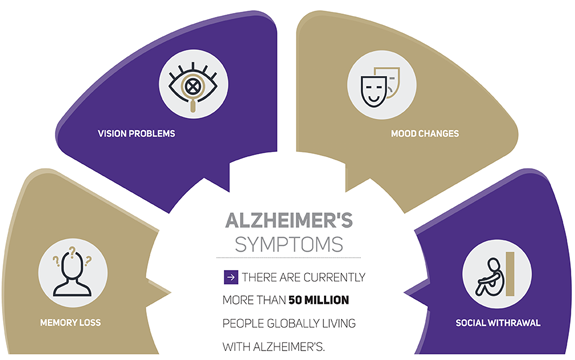 “Twelve percent of those over 65 suffer from dementia, with this population utilizing health care at a higher rate than their counterparts,” he said. “But unfortunately, not all care is created equal. Low-value health care not only raises costs with little derived benefit, but can also cause patient harm.”
“Twelve percent of those over 65 suffer from dementia, with this population utilizing health care at a higher rate than their counterparts,” he said. “But unfortunately, not all care is created equal. Low-value health care not only raises costs with little derived benefit, but can also cause patient harm.”
According to Barthold, though cognitive decline in patients affects their health care utilization, we aren’t sure how it relates to the value of health care. Low value care is wasteful and can be harmful, and high value care improves patient welfare, so the study is designed to build understanding of how cognitive decline relates to these important outcomes.
Ultimately, he hopes results from this work will form a comprehensive picture of value utilization in this vulnerable population, allowing for targeted, effective policy measures.
“Results from this study will improve the targeting and implementation of policies that promote value, with benefits for both patient and societal welfare,” he said.
IMPACT ON A GRANULAR LEVEL
Alzheimer’s and other dementias are tremendously complex diseases at every level – from their cultural and societal impact to a host of fine-grained molecular details that present significant challenges all their own.
Associate Professor of Medicinal Chemistry Abhi Nath is researching how the clumping and tangling of protein molecules in the brain causes the death of nerve cells in many dementias including Alzheimer’s. A prime suspect is an enigmatic protein called tau.
“Tau rapidly flickers from one structure to another, making it an intractable target for conventional drug design, and contributing to the lack of effective treatments for Alzheimer’s and related dementias,” said Nath. “Tau forms small, hard-to-detect toxic aggregates. By the time protein aggregates are large enough to be detected, most of the damage has already been done.”
Nath’s team has discovered and designed several new compounds that could serve as leads for new therapies, as well as diagnostic tracers that could detect small toxic aggregates.
“It has been very rewarding to come up with new ways of tackling tau dysfunction – both by inventing new drug discovery methods and by better understanding the body’s own defenses against tau aggregation,” he said.
“Our ultimate goal is to enable the early diagnosis and effective treatment of tau-linked dementias.”
2021 ALZHEIMER’S DISEASE FACTS & FIGURES
DISCRIMINATION
is a barrier to Alzheimer's and dementia care, and these populations reported discrimination when seeking health care
-
OF BLACK AMERICANS

-
OF NATIVE AMERICANS

-
OF ASIAN AMERICANS

-
OF HISPANIC AMERICANS


Thank you to each of these alumni for leading the profession and creating one of the most influential alumni communities in the country. Recognition as an Alumni Legend is reserved for UWSOP Alumni who have demonstrated excellence in their profession, are connected to the School, and have a positive impact on the pharmacy practice and research communities.
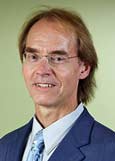 Douglas Black ’81/’83, was awarded the Gibaldi Excellence in Teaching Award by the UW School of Pharmacy. The award is presented by Pharmacy graduates to a member of the faculty in recognition of outstanding efforts to enhance student learning.
Douglas Black ’81/’83, was awarded the Gibaldi Excellence in Teaching Award by the UW School of Pharmacy. The award is presented by Pharmacy graduates to a member of the faculty in recognition of outstanding efforts to enhance student learning.
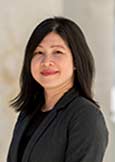 Thu Oanh Dang, PharmD, BCOP, ’08, was elected to the Board of Pharmacy Specialties Council on Oncology Pharmacy for 2021. Thu is a hematology/oncology clinical pharmacist at Massachusetts General Hospital (MGH), residency coordinator for PGY2 oncology at MGH and an adjunct professor at Massachusetts College of Pharmacy Health Sciences (MCPHS).
Thu Oanh Dang, PharmD, BCOP, ’08, was elected to the Board of Pharmacy Specialties Council on Oncology Pharmacy for 2021. Thu is a hematology/oncology clinical pharmacist at Massachusetts General Hospital (MGH), residency coordinator for PGY2 oncology at MGH and an adjunct professor at Massachusetts College of Pharmacy Health Sciences (MCPHS).
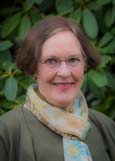 Shirley and Herb Bridge Endowed Professor Beth Devine ’71, was awarded a U.S. Fulbright Scholarship and a sabbatical to study at the School of Medicine, University of Murcia, Spain (Fall 2021). She was also awarded a sabbatical to study at the Centre for Reviews and Dissemination, University of York, UK (Winter and Spring 2022).
Shirley and Herb Bridge Endowed Professor Beth Devine ’71, was awarded a U.S. Fulbright Scholarship and a sabbatical to study at the School of Medicine, University of Murcia, Spain (Fall 2021). She was also awarded a sabbatical to study at the Centre for Reviews and Dissemination, University of York, UK (Winter and Spring 2022).
 Impel NeuroPharma, a Seattle-based biopharmaceutical company co-founded by UWSOP alum John Hoekman ’10, received approval from the U.S. Food and Drug Administration in September 2021 for its novel nasal spray that treats migraine headaches. Rodney Ho oversaw John’s thesis work in 2008 that led to Impel’s core technology.
Impel NeuroPharma, a Seattle-based biopharmaceutical company co-founded by UWSOP alum John Hoekman ’10, received approval from the U.S. Food and Drug Administration in September 2021 for its novel nasal spray that treats migraine headaches. Rodney Ho oversaw John’s thesis work in 2008 that led to Impel’s core technology.
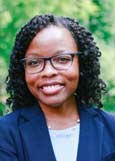 Klarissa Jackson, MedChem PostDoc ’13, was awarded the National Institute of General Medical Sciences Maximizing Investigators’ Research Award for Early-Stage Investigators, a $1.9 million award to support her project titled, “Interindividual Variability in Drug Metabolism in Ethically Diverse Populations.” Klarissa is an assistant professor in the Division of Pharmacotherapy and Experimental Therapeutics at the UNC Eshelman School of Pharmacy.
Klarissa Jackson, MedChem PostDoc ’13, was awarded the National Institute of General Medical Sciences Maximizing Investigators’ Research Award for Early-Stage Investigators, a $1.9 million award to support her project titled, “Interindividual Variability in Drug Metabolism in Ethically Diverse Populations.” Klarissa is an assistant professor in the Division of Pharmacotherapy and Experimental Therapeutics at the UNC Eshelman School of Pharmacy.
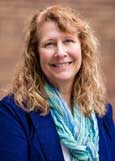 Teresa O’Sullivan, PharmD, BCPS ’84, received the Wayne A. Kradjan Excellence in Clinical Teaching Award from the UW School of Pharmacy and named APPE Preceptor of the Year. Presented at graduation each year, the Kradjan Award recognizes individuals who are exemplary practitioners, role models, coaches, learning facilitators, and team players. Teresa is an Assistant Professor in the Department of Pharmacy and Director of Experiential Education, Advanced Practice at the UW School of Pharmacy.
Teresa O’Sullivan, PharmD, BCPS ’84, received the Wayne A. Kradjan Excellence in Clinical Teaching Award from the UW School of Pharmacy and named APPE Preceptor of the Year. Presented at graduation each year, the Kradjan Award recognizes individuals who are exemplary practitioners, role models, coaches, learning facilitators, and team players. Teresa is an Assistant Professor in the Department of Pharmacy and Director of Experiential Education, Advanced Practice at the UW School of Pharmacy.
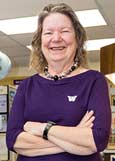 Beverly Schaefer ’70, was awarded the inaugural Sharlea Leatherwood Memorial Trailblazer Award from the National Community Pharmacists Association Foundation during NCPA’s Annual Convention. The Trailblazer Award recognizes an outstanding pharmacy owner whose pharmacy practice blazes a trail for other independent pharmacy owners and future generations of independent pharmacy owners. The award is in recognition of Sharlea Leatherwood, former NCPA and NCPA Foundation President.
Beverly Schaefer ’70, was awarded the inaugural Sharlea Leatherwood Memorial Trailblazer Award from the National Community Pharmacists Association Foundation during NCPA’s Annual Convention. The Trailblazer Award recognizes an outstanding pharmacy owner whose pharmacy practice blazes a trail for other independent pharmacy owners and future generations of independent pharmacy owners. The award is in recognition of Sharlea Leatherwood, former NCPA and NCPA Foundation President.
THANKS TO THE GENEROUS ALUMNI SUPPORT IN 2020

#1 AT UW FOR ALUMNI GIVING

$2.6 MILLION IN STUDENT SUPPORT

100% OF PHARMD APPLICANTS SUPPORTED
Students Provide Hopeful ‘FEEDBACK’
New initiative champions equity among marginalized students.

Though the University of Washington (UW) prides itself on diversity, there’s still much work to be done regarding the promotion of equitable representation of our state’s native and Latino communities.
Thanks to the dedication and commitment of four UW undergraduate students – Micaela (Mickey) Ruiz, Kaycie Opiyo, Kim Ha and Nana-King-Karikari) – a new program has been designed to energize and advance those efforts. The student-driven initiative, called FEEDBACK (Fostering Educational Excitement Designed for Bold and Academically Curious Kids), aims to encourage educational achievement in young students from underrepresented backgrounds.
In addition to the project’s four co-founders, all pursuing degrees in STEM, the team is comprised of UWSOP graduate student Kendan Jones-Isaac, who is pursuing a doctorate in the Department of Pharmaceutics, and Pharmaceutics Associate Professor Ed Kelly. Both Kelly and Jones-Isaac are serving as project mentors.
“As their graduate mentor, I have been continuously impressed with the creativity and dedication of our student leaders,” said Jones-Isaac. “FEEDBACK is, at its core, shaped towards celebrating the valuable role that educators play in inspiring student aspirations. We are students who have benefited from their inspiration, and want to give back.”
Kelly added that what makes the project special is that it was created by students– for students.
“A goal of the FEEDBACK program is to give the teachers the tools and advice on how to cultivate intellectual curiosity and motivation at this critical juncture in these students’ lives,” he said. “While everything to date has been via online, we do plan to have a field trip for the cohort of students to UW with the grant support we received. ”
The project’s origin took root in late 2020, during a seemingly random study break discussion.
“We were talking about how cool it would be to start a STEM outreach program,” recalls Ruiz, who also serves as executive director for the FEEDBACK project. “Kim (Ha) was looking through her emails and saw several mentioning the Husky SEED grant, so she suggested that we actually start an outreach program and apply for it. We applied for the first SEED grant but got rejected. Then we applied for the OMAD Diversity grant in autumn and got it – and here we are!”
Co-founder Kaycie Opiyo believes empathy and compassion are essential components to making the FEEDBACK project successful.
“I hope this program will create accessibility,” she said. “With FEEDBACK, we can help break down those misconceptions and show kids that there are people out there who care about them and want to see them succeed. We can all learn from each other.”
2021 GRAD STUDENTS MAKING AN IMPRINT ON DIVERSITY

- ASIAN 30%
- BLACK/AFRICAN AMERICAN 7%
- CAUCASIAN 34%
- HISPANIC/LATINO 3%
- INTERNATIONAL 26%
A Q&A With DAA Award Recipients Dawn Ipsen and Han Kiat Ho
This year, the UW Pharmacy Alumni Association proudly recognized Dawn Ipsen, PharmD ’01, and Han Kiat Ho, PhD ’05, as the 2020 Distinguished Alumni Award recipients. Over the years, we have honored more than 50 deserving alumni, granting them the status of Alumni Legend.
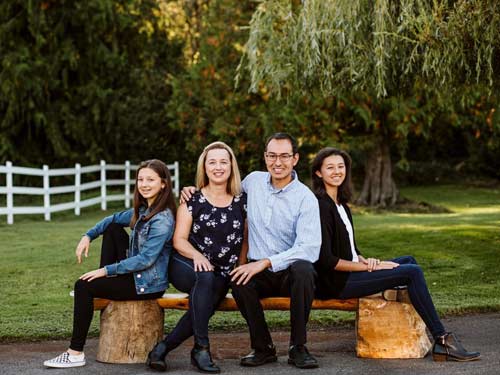
DAWN IPSEN
How did your passion for science and health care begin?
I’m a first-generation college student and really knew early on that I wanted a doctorate degree and do something that helped people. I was very squeamish and didn’t think I could handle being a doctor, but in undergraduate I was a pre-pharmacy major, definitely had my goals set, and UW was in that pathway the whole time, and I worked really hard to get there.
What were your childhood career aspirations?
Honestly, I originally thought I wanted to be a teacher, and with my passion for pharmacy, I’m actually able to do both – I’m a teacher to patients, I’m a teacher to students who want to be pharmacists, I’m on faculty at Bastyr University and teach their pharmacology courses. So, I’m blessed I get to still wear that hat, as it’s something I enjoy and am good at.
Who inspires you?
There are so many people that I get to call colleagues and friends, and I’m grateful to all of them. There have been many over the years that have gotten me to where I am – Don Kusler, of course, the founder of Kusler’s Compounding Pharmacy; Beverly Schaefer ‘70; John Oftebro ‘03 – just people I’ve really looked up to and admired.
On volunteering as a preceptor:
I knew that I wanted to give back to the School of Pharmacy, and serving as a preceptor, and opening our doors to students who wanted to learn was a way for me to do that. The students are so diverse. They all get a glimpse of what we do, and they leave here knowing how this might help their patients in the future.
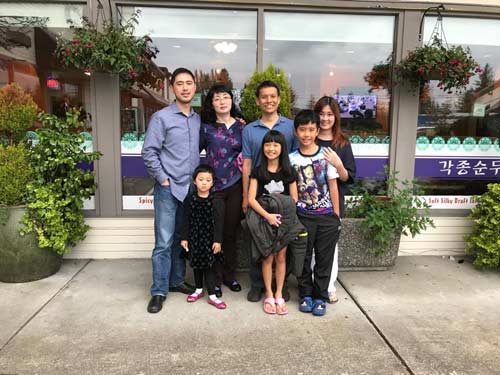
HAN KIAT HO
How did your passion for science and health care begin?
A long time back – maybe my elementary school days. I was fascinated with medication and the labels on the back of medication bottles. I would read these long names and think, ‘Behind these long names must be some deep meaning.’ That was the starting point to my love for chemistry. When I eventually had to make a decision on what to study at the university, something related to chemistry became an obvious choice.
What words of wisdom do you share with students?
One can be extraordinary simply by doing the ordinary things extremely well. Every little thing in life matters, and most people fail because they don’t do the little things right. If we remain steadfast with every little task and value every connection you have, and demonstrate sincerity, eventually you will prove to be an extraordinary person.
Where was your favorite hangout as a student at UWSOP?
Every Monday evening, we would have a “Monday Night Meeting,” where graduate students and faculty members would gather together and exchange ideas. That’s where I got to see – and hear – how some of the faculty members think about science, and the way they ask questions. In fact, I believe I learned more from those moments than attending classes.
Which professor or advisor left a lasting impact on you?
My PhD supervisor, Professor Sid Nelson ‘68, had the greatest impact on me. The connection continued even after I graduated. He was an incredibly humble and intelligent man, and he impacted people through his actions.
Shining a Light on Underserved Communities
UWSOP alumna Erica Woodahl ’04 has devoted her career to improving health outcomes for minority populations in her home state of Montana.
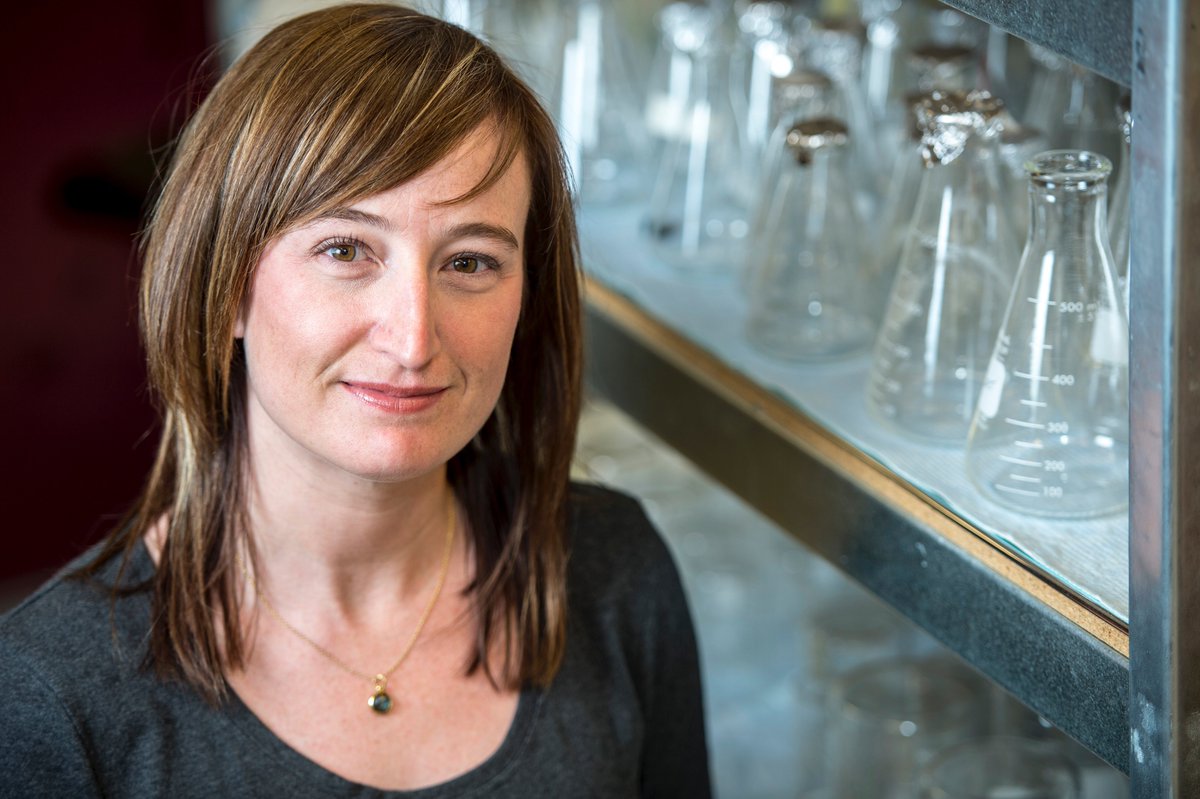
“Many University of Montana students are first-generation college students, and I enjoy working with them to broaden their perspectives on careers in pharmacy and the pharmaceutical sciences.”
When Missoula, Montana native and UWSOP alumna Erica Woodahl found herself on familiar stomping grounds in 2007 after accepting a position at the University of Montana Skaggs School of Pharmacy, she knew it was the right place and time to commit herself to a long-held passion – improving health outcomes for indigenous communities.
“American Indian people make up the largest minority group in Montana, yet face several health disparities relative to non-Native Montanans,” she said. “During my graduate and postdoctoral training at the University of Washington, I focused on research in pharmacogenomics – or how genetic make-up can influence a person’s response to medications. While pharmacogenomics has been shown to improve health outcomes for patients, the benefits are not accessible to all. I wanted to find a way to take this training and make a difference in my local communities.”
Woodahl said most research in her native state has focused on inclusion of patients who are largely of European ancestry and are served by major academic medical centers in urban areas, which leaves out rural and tribal communities in Montana.
“We’re working to change that,” she said. “My research helps to address the inequities in access to research for these populations so that the innovations that arise from pharmacogenetic work can benefit all people, and not just a few.”
Woodahl and her colleagues have partnered with rural and tribal communities in Montana to improve access to pharmacogenetic and precision medicine research.
“With the Confederated Salish and Kootenai Tribes (CSKT) on the Flathead Reservation in western Montana, we have worked on pharmacogenetic and gene-environment research projects in the treatment of cancer and cardiovascular disease, tobacco cessation, and vitamin D sufficiency,” she said. “I also work with Shodair Children’s Hospital, which provides in-patient and out-patient psychiatry care to children across Montana to implement pharmacogenetic testing to improve drug response in mental health. We have also launched the new Skaggs Institute for Health Innovation at the University of Montana to improve access to emerging health innovations like pharmacogenetics for rural and tribal populations.”
Though a successful career has taken her far from the evergreen skyline of the UW campus, Woodahl insists she still carries with her many lessons learned from her journey at UWSOP, particularly an emphasis on team-based science and a focus on how laboratory-based research can translate to benefiting patient care.
“In my current research, I work with a multidisciplinary group of researchers, including those in pharmacy, public health, medicine, and the humanities, with a focus on addressing equity in access to health care,” she said. “This team-based approach to research was something that was encouraged in the UW School of Pharmacy and has continued to benefit my research with underserved communities.”
2021 Endowed Faculty Appointments
 The University of Washington School of Pharmacy community congratulates the recipients of the 2021 Endowed Faculty Awards. Our community is ever grateful to the generosity and vision of our alumni and donors who created endowed funds to support one of our most important strategic pillars – our people. We celebrate this historic moment for the School – never before have we been privileged to support so many of our deserving faculty. We congratulate these recipients and look forward to seeing the direct impact of donor support.
The University of Washington School of Pharmacy community congratulates the recipients of the 2021 Endowed Faculty Awards. Our community is ever grateful to the generosity and vision of our alumni and donors who created endowed funds to support one of our most important strategic pillars – our people. We celebrate this historic moment for the School – never before have we been privileged to support so many of our deserving faculty. We congratulate these recipients and look forward to seeing the direct impact of donor support.
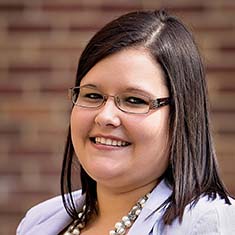
Jennifer Bacci
Endowed Professorship in Innovative Pharmacy Practice
Established in 2006 under the leadership of Professor Jacqueline Gardner, the Institute for Innovative Pharmacy Practice supports a faculty member at the UW School of Pharmacy in educating pharmacists who promote innovative and entrepreneurial solutions for better health and better business.
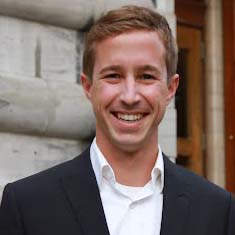
Doug Barthold
The CHOICE Institute Endowed Professorship
Established in 2020 to enhance the University’s ability to recruit and retain early-career faculty in The CHOICE Institute, this endowment affirms The CHOICE Institute’s position as a global leader in improving population health through transformative learning, research and dissemination about the effectiveness, safety and value of medical products, services and policies.
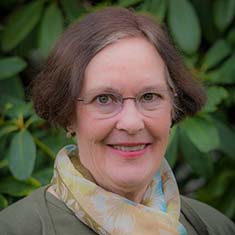
Beth Devine
Shirley and Herb Bridge Endowed Professorship for Women in Pharmacy
Established in 2005 by Shirley Bridge ’45, and Rear Adm. Herbert Bridge, USN, this endowed professorship ensures that faculty at the UW School of Pharmacy have the opportunity to carry on the passionate legacy of Shirley’s legacy as a pharmacist and community champion.
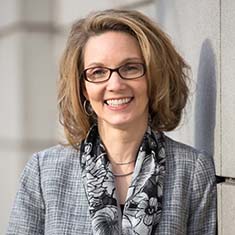
Jennifer Danielson
Lynn and Geraldine Brady Endowed Professorship
Created in 2015 by Lynn Brady ’60, and Geraldine Brady to support faculty excellence at the UW School of Pharmacy. As the first chair of the Department of Pharmaceutical Sciences, Dr. Brady ensured the continued legacy of faculty excellence through the creation of this endowed professorship.
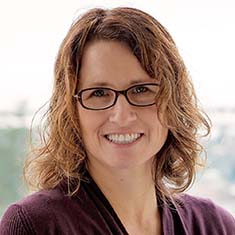
Shelly Gray
Plein Endowed Faculty Fellowship for the Director of the Center for Geriatric Pharmacy Research, Education and Outreach
Established in 2016 by Joy Plein ’57, to build upon decades of excellence achieved by the UWSOP Geriatric Pharmacy Program, this endowment supports the Director of the Plein Center for Geriatric Pharmacy Research, Education and Outreach in achieving the Center’s mission.
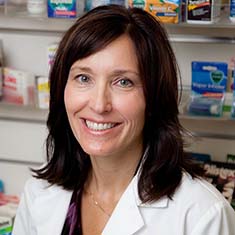
Peggy Odegard
Lynn and Geraldine Brady Endowed Professorship
Created in 2015 by Lynn Brady ’60, and Geraldine Brady to support faculty excellence at the UW School of Pharmacy. As the first chair of the Department of Pharmaceutical Sciences, Dr. Brady ensured the continued legacy of faculty excellence through the creation of this endowed professorship.
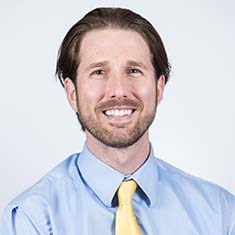
Zach Marcum
David and Anita Bailey Endowed Faculty Fellowship
Established in 2016 by David Bailey ’70, and Anita Bailey to honor their respective professions and the education David received from Joy Plein ’57. This endowment supports the continuation of the Plein legacy at the UW School of Pharmacy.
Karan Dawson Reflects On Four Decades At UW
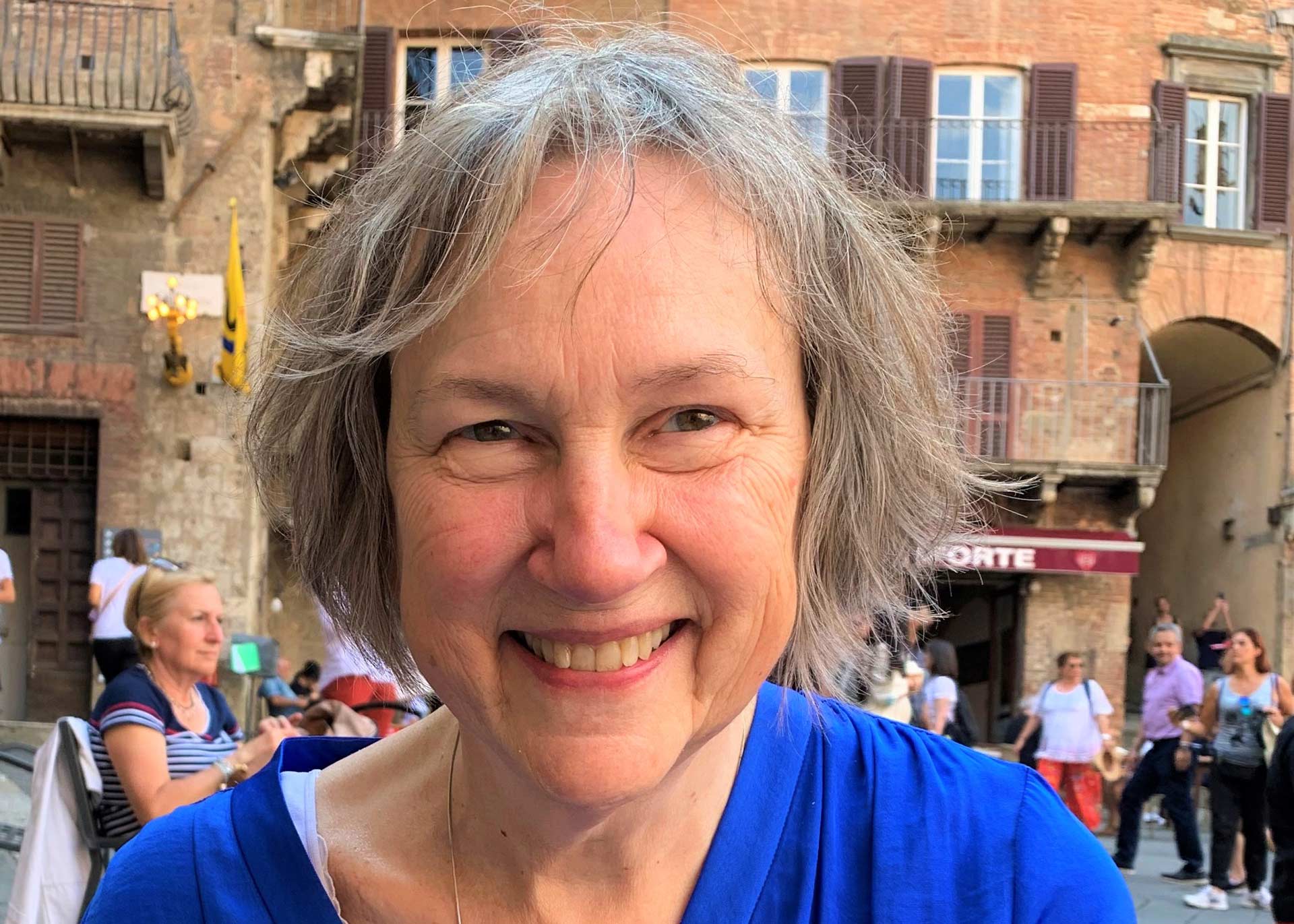
“It is a joy to look back and see how pharmacy has developed into an ever expanding dynamic and comprehensive profession”
After 43 years of outstanding service to the University of Washington and the School of Pharmacy, Karan Dawson ’78 officially retired in July 2021. She joined the School in 1978 to lead development of our Continuing Education capabilities and offerings and played an integral role in the development and implementation of the Purple Curriculum.
Dawson began her journey at UW with designs on a career in nursing – until she discovered chemistry. “In my first year in college, I was a teaching assistant for one of my chemistry professors,” she recalled. “His wife introduced me to pharmacy, which led me to determine that the best way to unite my two interests was to become a pharmacist. I am glad that my teachers were visionaries and pioneers. They opened doors of possibilities and encouraged me to move beyond my comfort zones. I could have had no better preparation for a professional career and more importantly for life.”
Dawson certainly returned the favor during her tenure at the School, having a profound influence on not only her students, but colleagues as well.
“Karan has a unique lens through which she sees the world – one of peace, centeredness, hope, and care,” said Peggy Odegard ‘85/’90, associate dean, Professional Pharmacy Education, and Lynn and Geraldine Brady Endowed Professor. “Her mentoring and support have guided me often, and I treasure the gift of knowing and working with her.”
Added Department of Pharmacy Professor and Chair Steve White: “Karan is a passionate educator who always puts the interest and wellbeing of her students and colleagues first. Over my tenure at the University of Washington, I have come to appreciate Karan’s compassion, her calm demeanor and positive perspective on every aspect of her professional life.”
In her four decades working at UW, Karan has seen and experienced a slew of changes in both education and pharmacy industry, from customer engagement to advances in technology.
“The most significant shift to me has been the changes and opportunities in the pharmacist’s role,” she said. “When I started in pharmacy, we were not allowed to talk to our patients about their prescriptions. Shortly after my licensure, pharmacists were mandated to provide patient education. Now pharmacists prescribe and provide individualized lifestyle modification plans to help people achieve better therapeutic outcomes and are integrated into health care teams that provide more comprehensive and better patient care.”
With so many memories in stock, Karan says it’s hard to pick and choose when attempting to summarize her cumulative experience at the School.
“I am grateful for every experience that life and pharmacy has brought,” she said. “I have been privileged to live in a limited way vicariously through my patients, their families, their health care providers, my students, colleagues within and beyond pharmacy, and the many people I met in communities and health organizations. It is a joy to look back and see how pharmacy has developed into an ever expanding dynamic and comprehensive profession. “I see that the future as getting bigger, full of surprises, and opportunities that will give us gifts if we only allow ourselves to recognize them.”
Those interested in honoring Karan’s retirement can make a gift to the Dawson Encouragement Endowed Fund.
Make a Gift
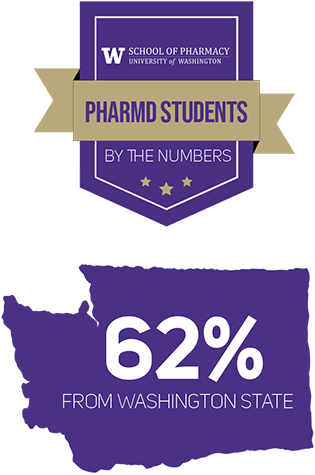


Originally published Fall 2021
